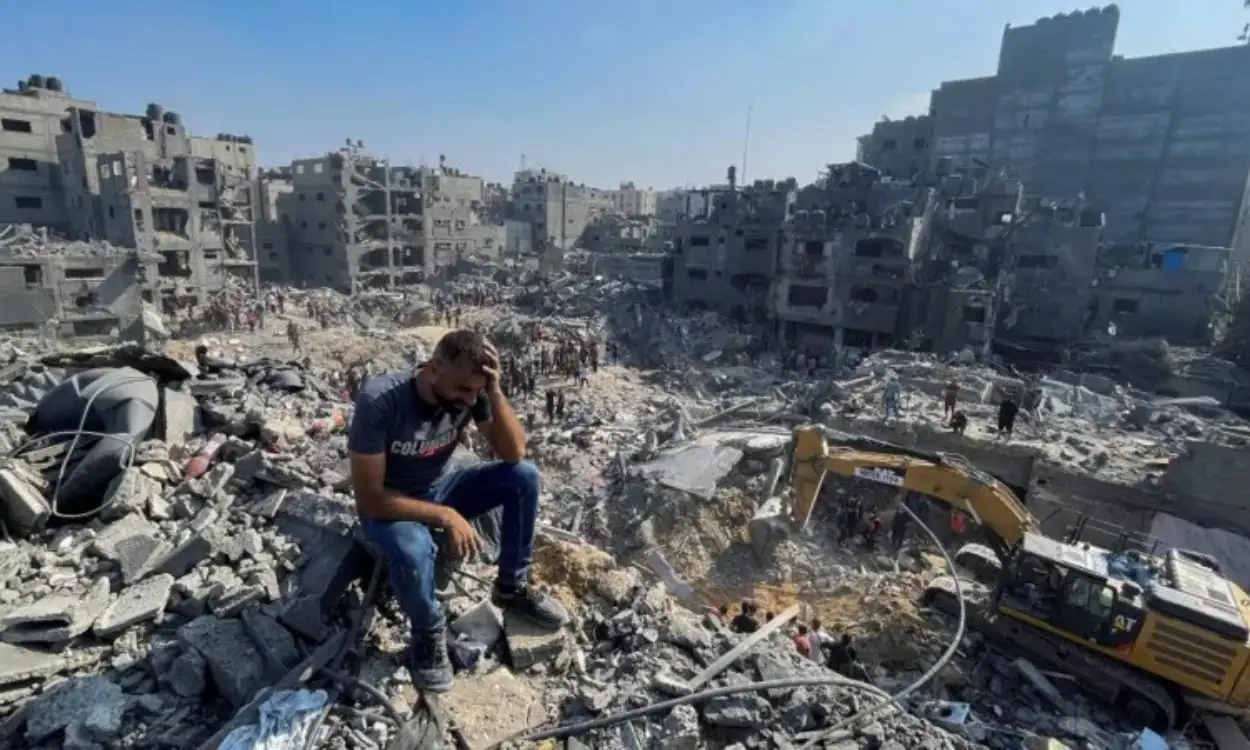ISRAEL (Transatlantic Today) —The Israel-Hamas conflict since October 7 remains complex, with no one having a complete picture. The ongoing violence has created uncertainty, with fast-evolving events hinting at new realities in the Middle East. This conflict, shaped by deep-seated history and recent escalations, has sparked concerns over wider regional implications.
Military Campaign and Israeli Support
Public support within Israel for the military campaign against Hamas remains high, driven by anger over the attack that killed more than 1,400 Israelis. The brutal assault and the ongoing hostage crisis have fueled calls for a forceful response against Hamas and its ally, Islamic Jihad. Many Israelis, reflecting the sentiment of figures like retired general Noam Tibon, believe military action is essential despite its toll on civilians.
Civilian Impact and International Concerns
As Israel’s operations continue, the humanitarian cost is devastating. Gaza’s health ministry reports over 9,000 Palestinian deaths, many of them women and children. Although U.S. President Biden backs Israel’s right to defend itself, he has urged restraint, highlighting the importance of minimizing civilian casualties. Secretary of State Antony Blinken’s recent comments show an unprecedented call for adherence to international humanitarian laws, reflecting U.S. concerns about civilian impacts.
Political Fallout and Leadership Criticism
Israeli Prime Minister Benjamin Netanyahu faces significant criticism. He has not taken responsibility for security lapses that allowed Hamas’s incursion. Recent remarks blaming intelligence agencies were met with public outrage, further eroding his support among Israel’s defense community. Prominent Israeli figures are openly questioning his role in leading the country during this crisis.
The Broken Status Quo and Regional Dynamics
The old, unstable status quo between Israel and the Palestinians has shattered, casting doubts on Netanyahu’s longstanding policy of sidelining the Palestinian Authority (PA). Israel’s decades-old “divide and rule” strategy in Gaza and the West Bank now appears flawed. Attempts to weaken the PA and bolster Hamas have contributed to today’s crisis, complicating future peace prospects.
The Elusive Solution: A Palestinian State?
The Israel-Hamas conflict reinforces the need for a viable peace framework, potentially through a two-state solution. Past negotiations, such as the Oslo Accords, aimed to establish a Palestinian state alongside Israel but failed due to opposition from both sides. Without a fresh approach to peace, future generations may be trapped in an unending cycle of conflict. The current violence might yet pressure both sides to re-evaluate entrenched positions, though such change remains uncertain.


























